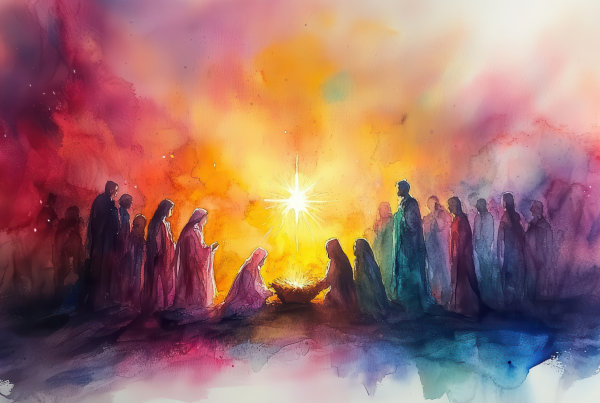Throughout the Spring, creation moves from death to life. Ice melts. Animals return from hibernation. Barren branches flower. We long for this newness to continue, both in nature and our hearts.
For centuries, cultures sought eternal life. Pilgrims searched for the Holy Grail. Alchemists attempted the Philosopher’s Stone. Some misguided seekers took a vampiric approach, drinking human blood in an attempt to preserve their youth. The quest for immortality still captures our imagination today. Hundreds of books, movies, and TV shows play out our fantasy of living forever. The trend continues in science as major players invest in biotech. The Washington Post reports the anti-aging industry will be worth an estimated $610 billion by 2025.
The desire for eternal life compels a rich young ruler to seek out Jesus: “Good teacher, what must I do to inherit eternal life” (Mark 10:17)? Jesus answers one question with another: “Why do you call me good? No one is good except God alone. You know the commandments: ‘You shall not murder, you shall not commit adultery, you shall not steal, you shall not give false testimony, you shall not defraud, honor your father and mother” (Mark 10:18–19). The eager young man declares his faithfulness to the law, promising he has kept these commands since he was a boy. But we know better. As Paul explains in his letter to the Romans, “no one will be declared righteous in God’s sight by the works of the law; rather, through the law we become conscious of our sin” (Romans 3:9–20). The mention of the commandments should cause the man to feel conscious of his sin, not confident in his righteousness.
Instead of scoffing at his arrogance, however, our Savior responds with love. He exhorts the man to sell his possessions, donate the money, and return to follow Jesus. The rich young ruler leaves saddened because he has great wealth. We never hear if he completed his task, but most scholars believe he refused Jesus’ command.
Jesus responds with a shocking metaphor: “Children, how hard it is to enter the kingdom of God! It is easier for a camel to go through the eye of a needle than for someone who is rich to enter the kingdom of God” (Mark 10:24–25). Material poverty is not a prerequisite for salvation, so what is Jesus saying? Why did he ask the young ruler for so great a sacrifice?
Wealth prolongs life on Earth. Money buys access to preventative medicine, safe housing, expensive surgeries, and groundbreaking research. In Jesus’ time, most believed the wealthy were blessed and favored by God—riches corresponding to righteousness. Yet Jesus laments the chances of a wealthy person entering the Kingdom of Heaven. If those with every advantage cannot gain eternal life, what chance do the rest of us have? Who can afford the wages of sin, which is death (Romans 6:23)? Who can be saved? Jesus makes a promise, “With man, this is impossible, but not with God; all things are possible with God” (Mark 10:27). Jesus would go on to fulfill his vow through his death and resurrection.
Death is the great enemy of life. For thousands of years, human beings tried and failed to live forever. No amount of potions or spells or biotech helped us escape. But, like a camel through the eye of a needle, Jesus performed an impossible miracle. He sacrificed himself for all humankind. His death covered our spiritual bankruptcy. After three days, he rose from the grave. Death was defeated. Those who believe in him shall never perish but have eternal life.
The empty tomb is a promise and a prediction. Though we will experience physical death on Earth, we will be raised with Christ in eternity. This is our great hope—a bloom on a barren branch. New grass poking through the snow. Life eternal.





